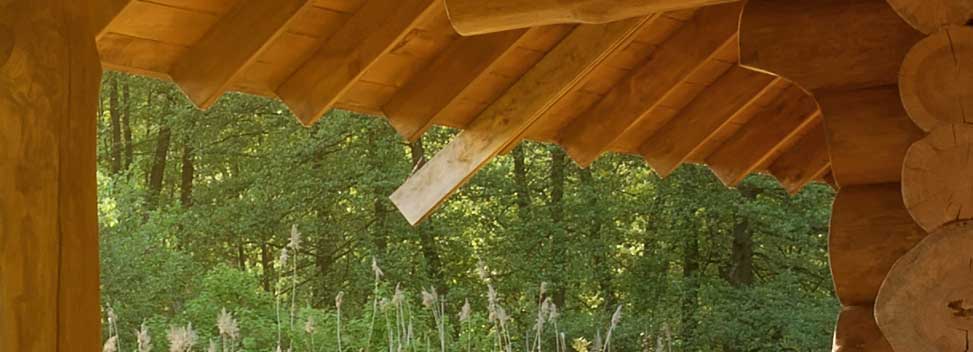Buying and owning a log cabin as a holiday home
Written by Nick Grant
7 Nov 2022
7 min read

A log cabin nestled within a picturesque forest can certainly deliver a UK staycation to remember, but it may also be a worthy investment for people wanting to generate extra income.
If you want to buy and let a log cabin as a holiday home then read on. From planning permission to maintenance, we’ll explain what you need to know about welcoming guests.
Planning to build a log cabin
Firstly, do you need planning permission for a log cabin? Unfortunately, it’s not a simple yes or no answer – it depends on where you plan to build it. If you’re building a log cabin on your own land, you might not need planning permission. Most cabins are designed to meet planning permission laws, so it’s simply a case of building the structure where you want it. The Town and Country Planning (General Permitted Development) (England) Order 2015 classes a log cabin as an outbuilding on your property. It states that outbuildings are compliant with planning permission laws if:- They are single-storey.
- The log cabin has a maximum eaves height of 2.5 metres.
- They have a total height of no more than 4 metres, including a dual-pitched roof.
- Any flat roof is no more than 3 metres high.
- No more than half the land around your property is covered by additions or other buildings.
- The log cabin is not built in a designated area.
- Your property is not a listed building.
How to finance a log cabin
Buying a log cabin isn’t as simple as buying a house. First of all, a lot of banks don’t offer mortgages for log cabins. Therefore, you’ll either need to buy it outright or find alternative financing arrangements. Alternatively, you could take out an equity loan. Like a mortgage, you’ll pay a monthly fee with added interest. You can often make down payments or deposits on equity loans to reduce your monthly payments. However, as with any loan, there are other financial implications to be aware of. Before making any decisions, speak to a financial advisor for guidance on your options3.Maintaining your log cabin
Keeping your log cabin in good condition is important for impressing guests and making the property last longer. To maintain your log cabin, here are a few tips:- Check the exterior of your log cabin regularly – look for any loose or damaged timber, holes, or other repairable damage.
- Wash the outside of your log cabin annually and treat the walls with a UV protector.
- Clear gutters of leaves and debris regularly.
- Ensure water is draining correctly – check both downpipes and sewage pipes.
- Check all windows and doors, and ensure seals are intact.
- Inspect the interior of your cabin, paying close attention to fixtures and fittings4.
Is buying a log cabin a good investment?
As with any mobile home, log cabins typically depreciate over time. However, with proper care and maintenance, you can help to prolong its lifespan, to help make it a worthwhile investment. You can rent out your log cabin as a holiday let to help generate a return on investment. In some cases, you could earn back what you paid – and sometimes more. Although, if you do let out your cabin, you should consider holiday letting insurance to protect your home from damage. At Intasure, we offer flexible holiday let insurance policies to provide added protection for your building and contents while guests stay. This can provide cover for accidental damage and theft.Benefits of buying a log cabin as a holiday home
As we’ve mentioned, log cabins are an attractive option for UK holiday seekers, with the potential to help you bring in extra monthly income. But there are plenty of other benefits, including:- Low maintenance costs – Log cabins are designed for low maintenance, so you may rarely need to fork out expensive fees for repairing damage. They’re also designed to last, with very little upkeep.
- Bespoke designs – You can build and design log cabins to suit your needs and offer unique features to your guests. Whether you want to offer a cosy, one-bed log cabin or a sizeable family retreat, you can pick and choose your holiday let’s design.
- Eco-friendly – Log cabins are typically made of timber, making them more sustainable and energy efficient than traditional properties. Timber holds in more heat than brick and mortar, so it’s less likely you’ll need to keep the heating on – even during winter. That means your bills may be lower, so less money is needed to run your holiday let.